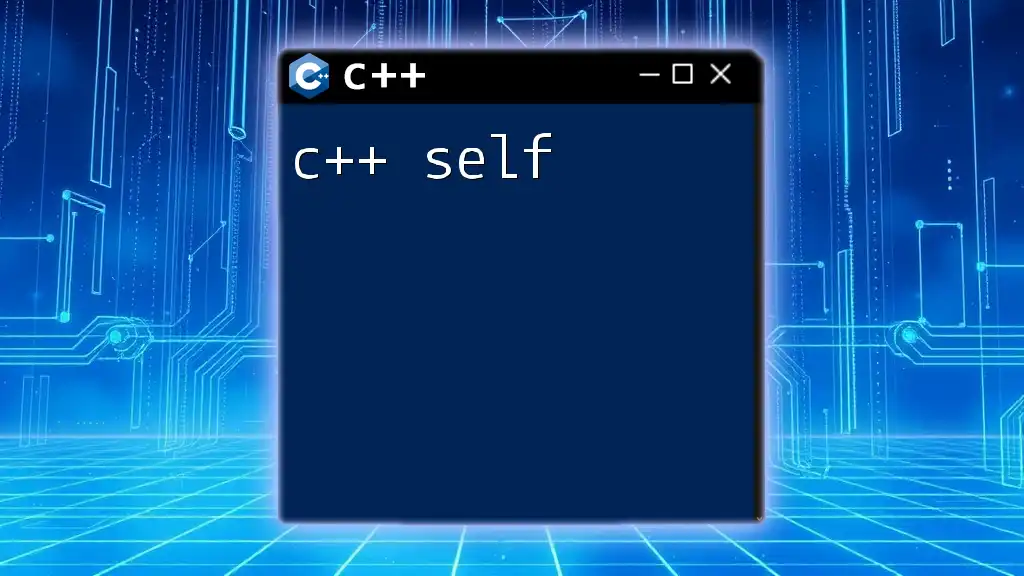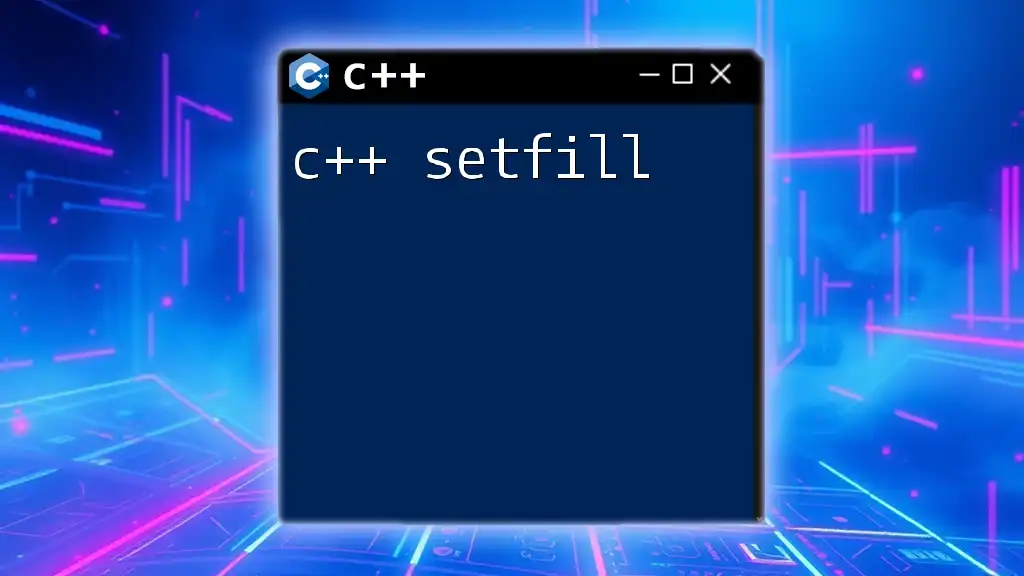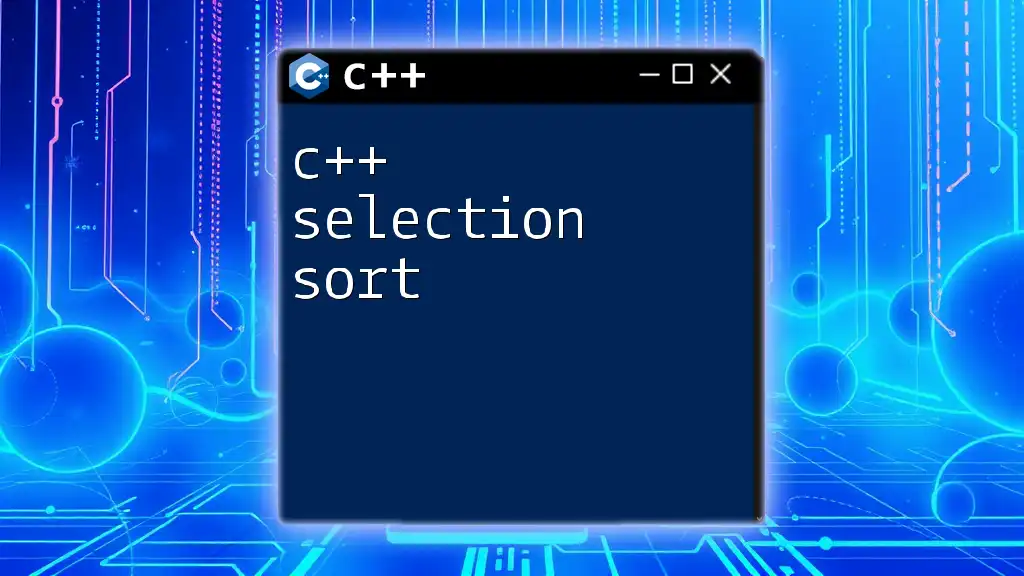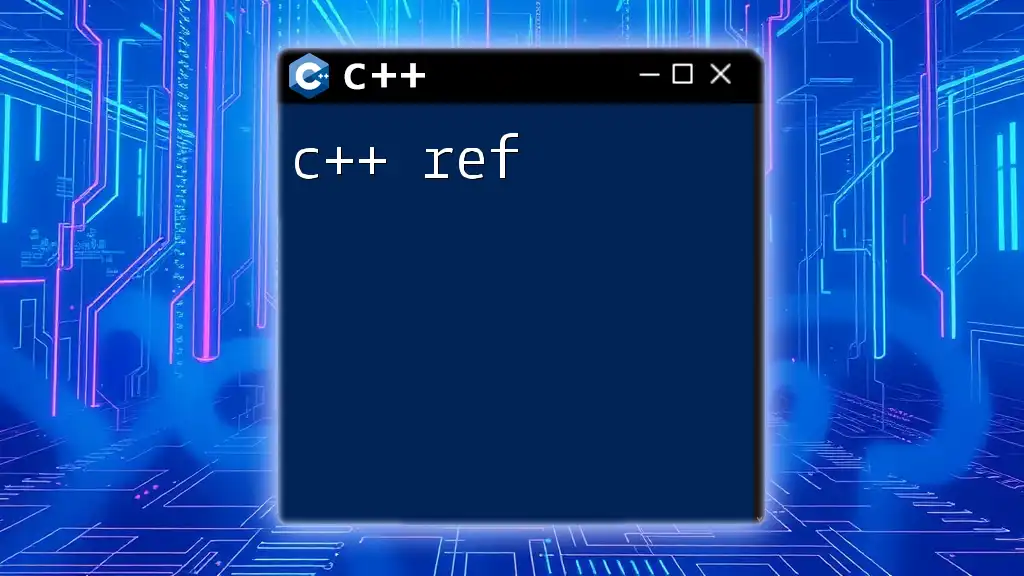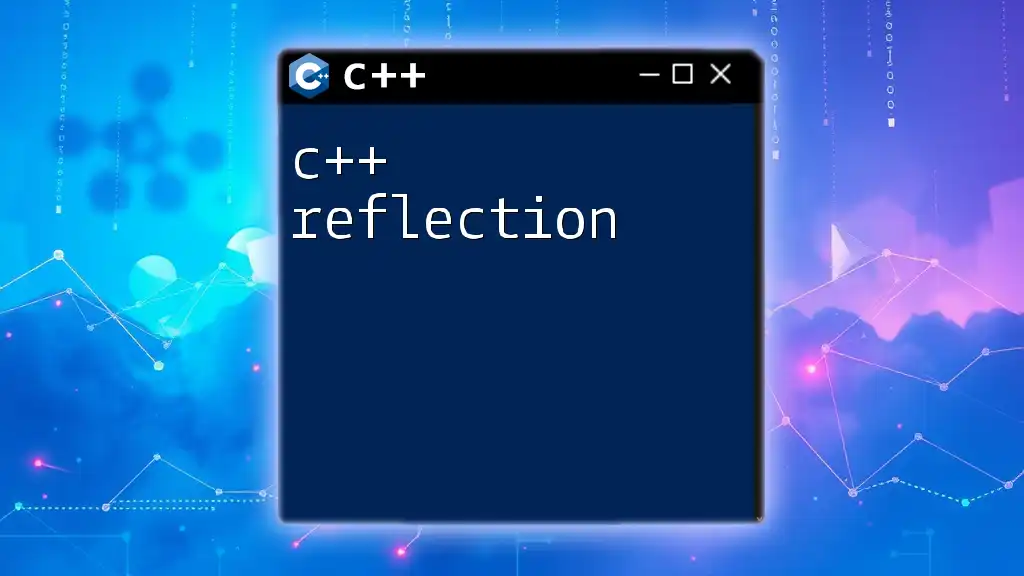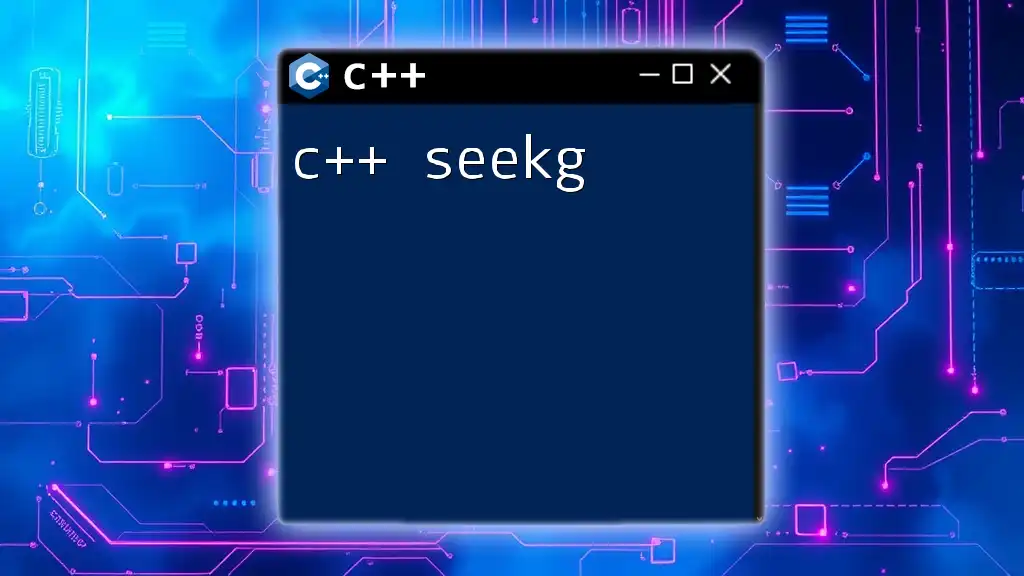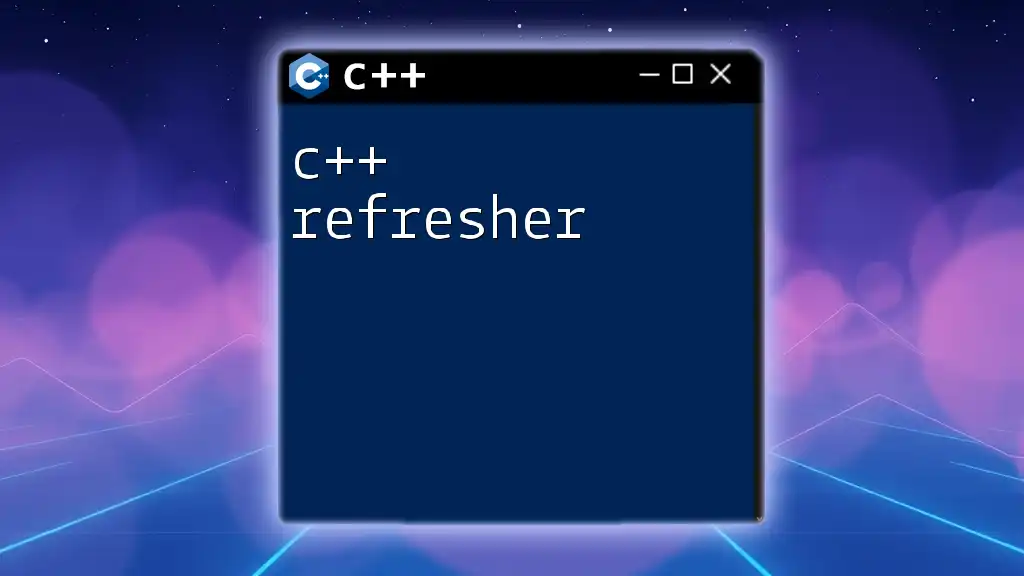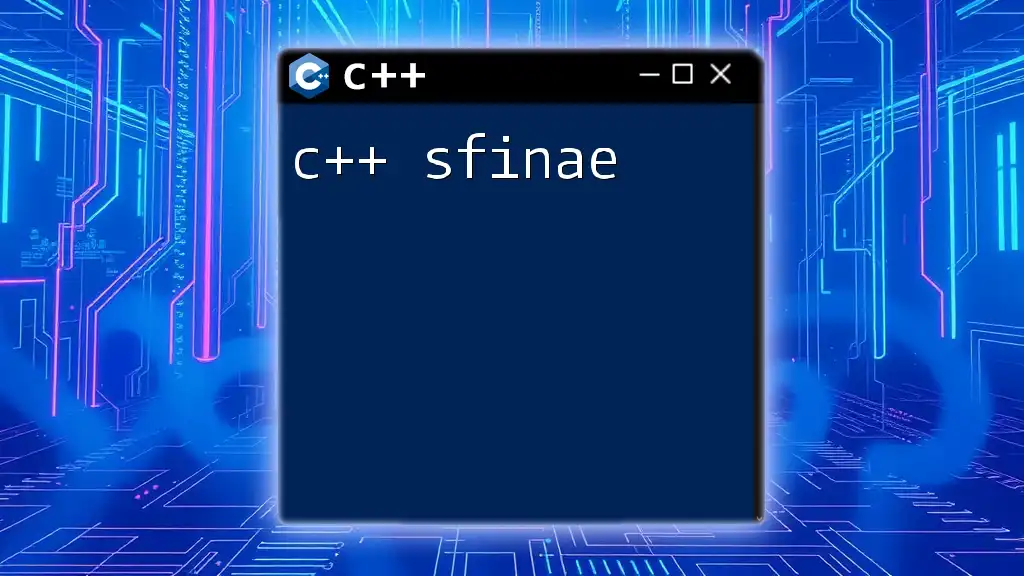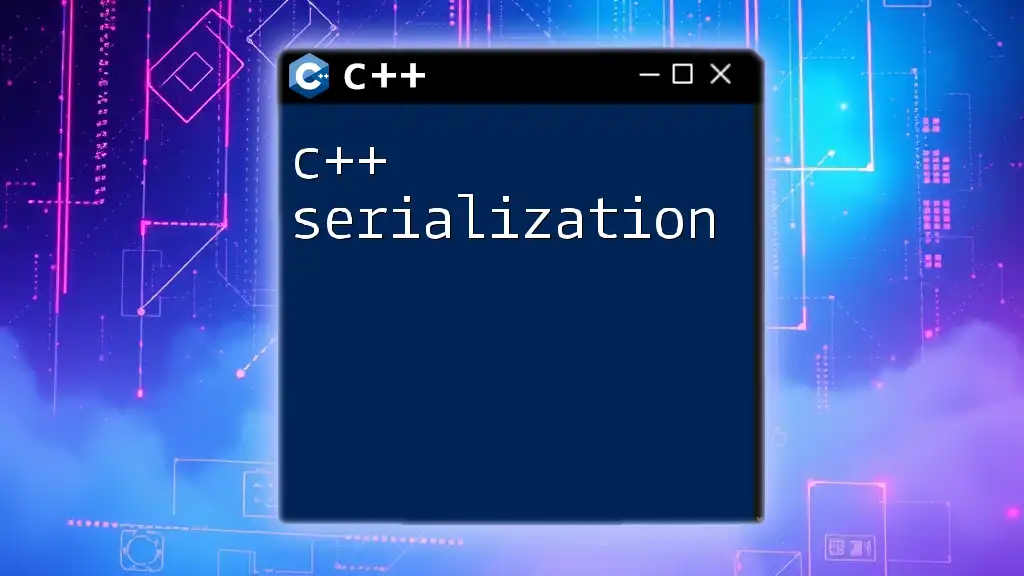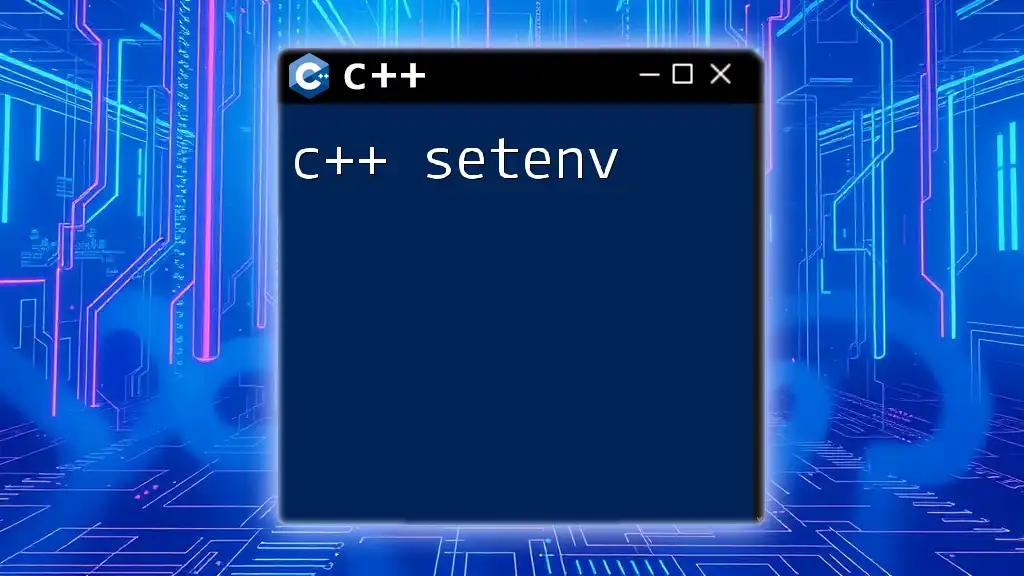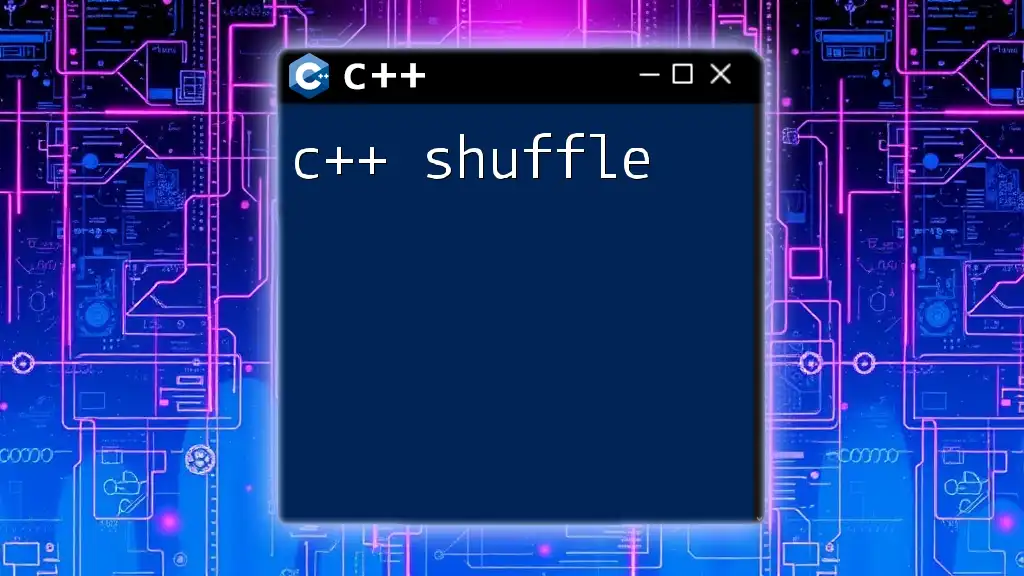In C++, the `self` keyword is commonly referred to as `this`, which is used to refer to the current instance of the class within its member functions.
#include <iostream>
class Example {
public:
void display() {
std::cout << "This object is at: " << this << std::endl;
}
};
int main() {
Example obj;
obj.display();
return 0;
}
Understanding 'self' in C++
What Does 'self' Represent?
In C++, the concept of 'self' typically refers to the current instance of a class. This allows programmers to refer to the object they are working with and manipulate its properties or methods. The notion of 'self' is crucial for object-oriented programming, as it enables access to member variables and methods of the current object.
To illustrate, let's compare 'self' in C++ with similar concepts in other programming languages. In Python, 'self' is used as an explicit parameter in methods to represent the instance of the class. In Java, 'this' fulfills a similar role. C++ relies on the `this` pointer to achieve the same functionality, ensuring that developers can effectively manage and reference the current object instance.
The Use of the `this` Pointer
Defining the `this` Pointer
The `this` pointer in C++ is a special pointer available within non-static member functions. It points to the object that invokes the member function. This allows developers to differentiate between member variables and local variables, which may share the same name.
How to Use `this`
Using `this` is straightforward but essential for clarity in code. Here’s a basic example demonstrating the use of the `this` pointer:
class Example {
public:
void show() {
std::cout << "Current object address: " << this << std::endl;
}
};
int main() {
Example obj;
obj.show();
return 0;
}
In this example, when the `show` method is called on the `obj` instance, `this` outputs the address of the current object. Understanding this behavior is crucial, as it lays the foundation for more complex instances where you need to reference the object itself.
Comparison: `this` vs Local Variables
One of the primary utilities of the `this` pointer is to resolve ambiguity between member variables and parameter variables. Here’s a common scenario—a constructor where `this` is instrumental in distinguishing between the two:
class Sample {
int value;
public:
Sample(int value) {
this->value = value;
}
};
In this code snippet, the constructor parameter `value` would overshadow the member variable with the same name. By using `this->value`, we explicitly indicate the member variable we wish to assign the constructor's parameter to.
Practical Applications of `this`
Chaining Member Function Calls
One of the elegant uses of the `this` pointer in C++ is for chaining member function calls, allowing a fluent interface. By returning a reference to the current object, developers can invoke multiple functions in a single statement. Here's an example:
class Chain {
int value;
public:
Chain& setValue(int v) {
this->value = v;
return *this;
}
void display() {
std::cout << "Value: " << value << std::endl;
}
};
int main() {
Chain obj;
obj.setValue(10).display();
return 0;
}
In this example, `setValue` modifies the `value` member and returns a reference to `*this`, enabling the subsequent `display()` method to be called in the same line. This makes the code more concise and readable.
Returning the Current Object
Returning `*this` from a member function can further enhance the usability of your classes. For instance, consider this implementation:
class Counter {
int count;
public:
Counter() : count(0) {}
Counter& increment() {
++count;
return *this;
}
};
int main() {
Counter c;
c.increment().increment();
return 0;
}
In this code, each call to `increment()` modifies the `count` and then returns a reference to the `Counter` object, allowing the method to be called multiple times in one statement.
Common Mistakes When Using `this`
Forgetting to Qualify Member Variables
One of the frequent mistakes novice programmers make is neglecting to use `this` when referring to member variables. This oversight can lead to logical errors and unintended consequences in the code. Always remember to qualify member variables when there's potential ambiguity.
For example:
class Mistake {
int value;
public:
Mistake(int value) {
value = value; // Error! The member variable is not being set
}
};
In this case, the member variable `value` is left uninitialized. A simple fix would be to use `this->value = value;` to clarify which `value` you are referring to.
Overuse in Setter Methods
Another common mistake is the overuse of `this` in setter methods. While it's generally good practice to clarify which variable you're referencing, excessive use can lead to cluttered code. Use `this` judiciously and only where ambiguity might arise.
Best Practices for Using `this`
Readability and Maintainability
Using `this` consistently in your code not only improves readability but also enhances maintainability. When other developers read your code (or even when you revisit your code later), having clear indicators of member variables versus parameters can simplify understanding.
Consider using clear naming conventions. For example, prefixing member variables with `m_` or `p_` (e.g., `m_value`) can greatly reduce the necessity of using `this`.
Performance Considerations
It's worth noting that while using the `this` pointer is essential for clarity, it does not inherently affect performance. The overhead of using `this` is negligible in most contexts. However, it's beneficial to remain aware of scenarios where over-optimization might lead to misunderstanding; focus on writing clear and maintainable code first.
Conclusion
In this exploration of c++ self, centered around the `this` pointer, we delved into its definition, usage, and importance in managing current object instances. Understanding when and how to use `this` effectively can significantly enhance your C++ programming skills.
By applying best practices and being mindful of common pitfalls, you can ensure your code is not only efficient but also clear and maintainable. Keep experimenting with this powerful feature as you deepen your proficiency in object-oriented programming, and remember—mastery of concepts like `this` is key to crafting well-structured and effective C++ applications.
Additional Resources
For further learning, consider exploring recommended books, online courses, or comprehensive documentation focusing on C++ and the `this` pointer, which will solidify your understanding and application of these principles in your coding journey.

